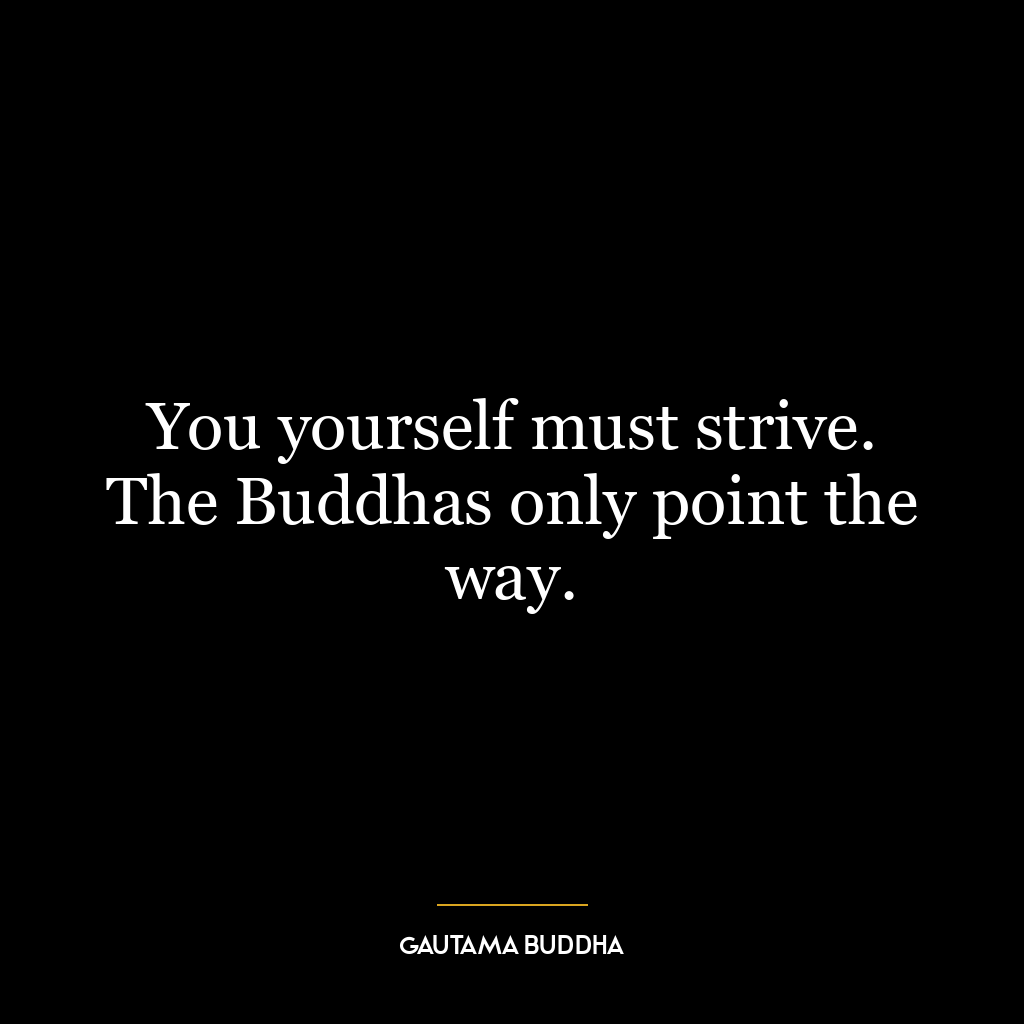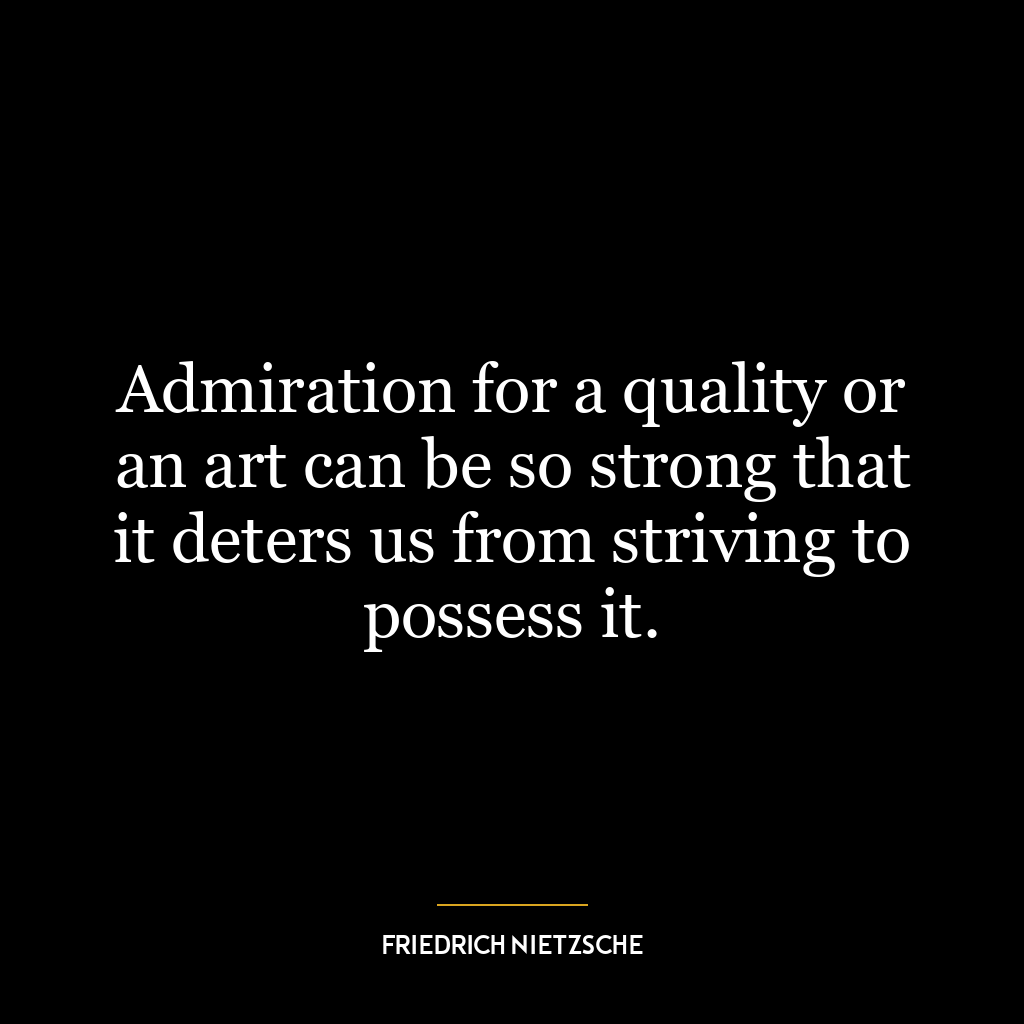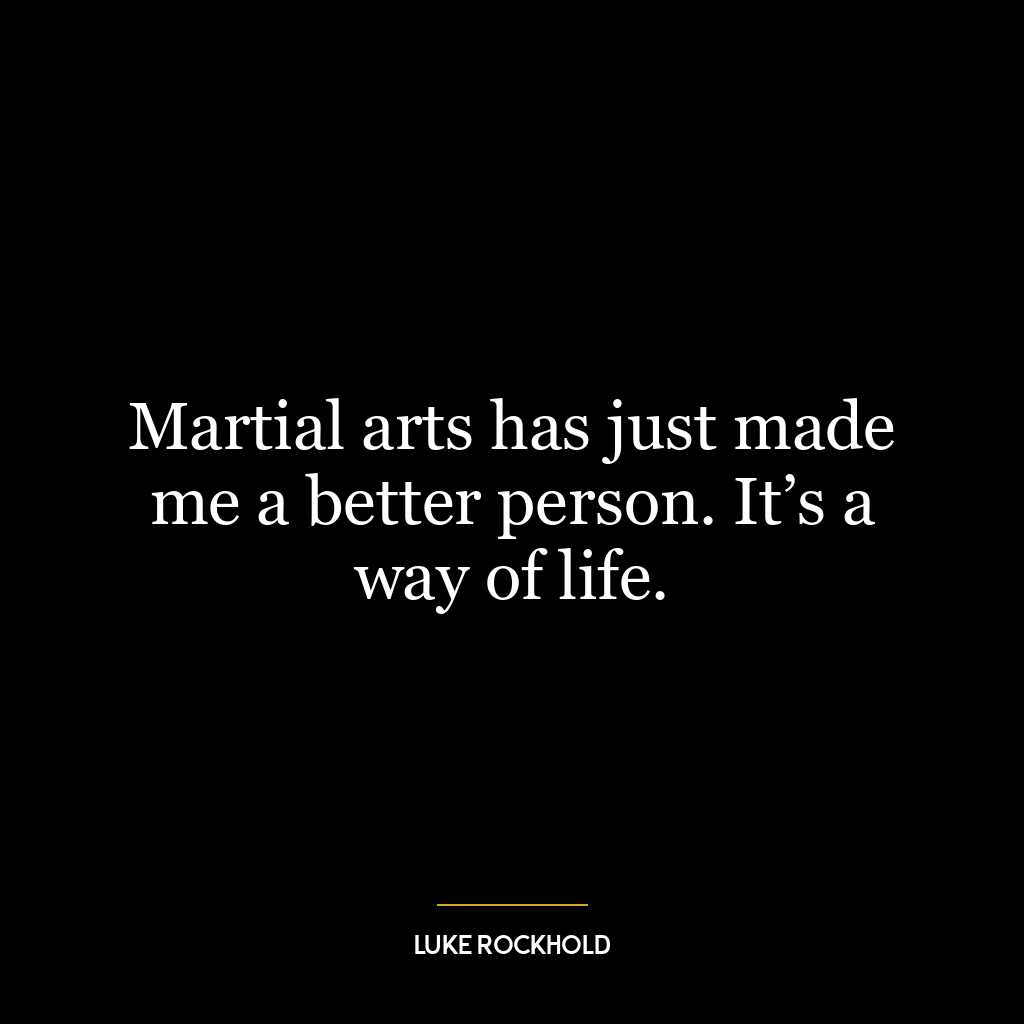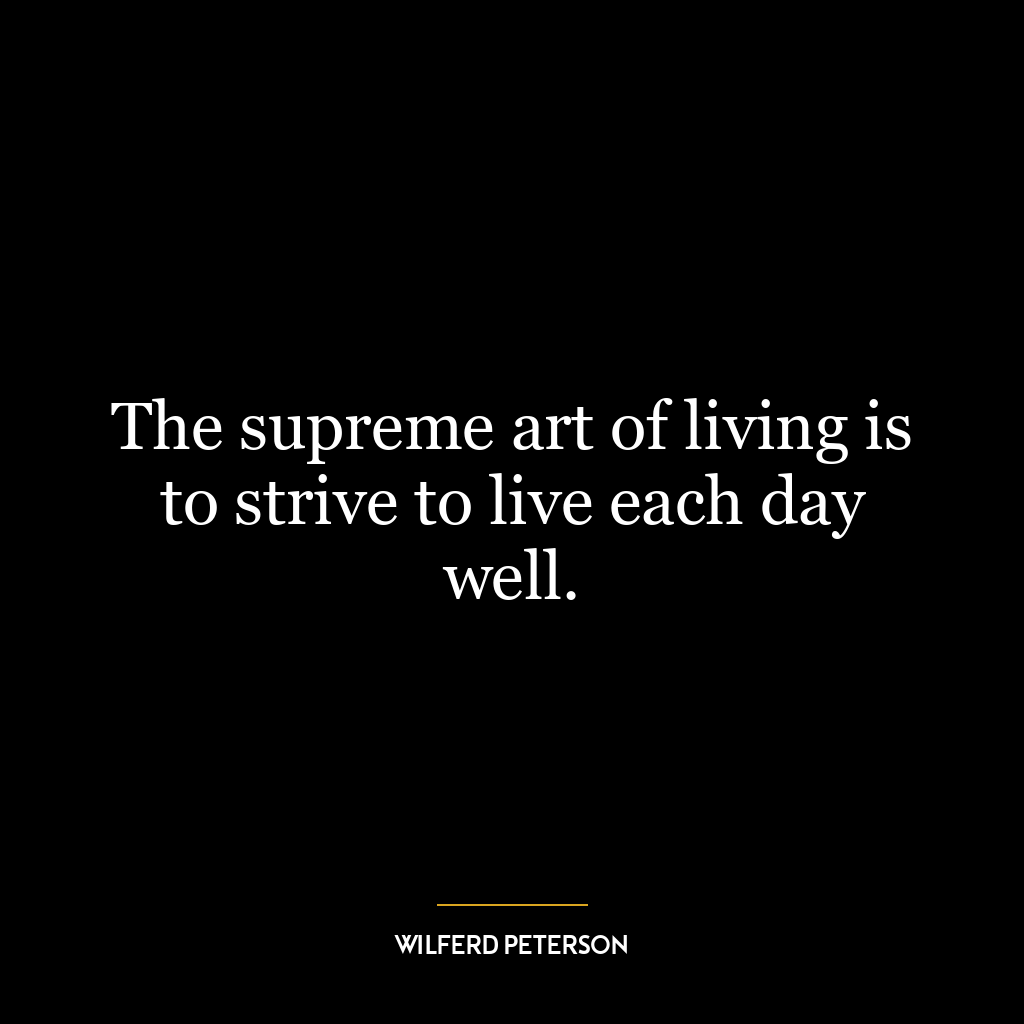This quote emphasizes the importance of individual effort and personal responsibility in one’s journey towards enlightenment or self-improvement. It suggests that while spiritual guides, teachers, or mentors can provide wisdom, directions, and tools, the actual work of learning, growing, and transforming is up to the individual. This is because the journey is deeply personal and subjective, involving introspection, self-awareness, and personal choices that only the individual can make.
The Buddhas, as enlightened beings, can illuminate the path, but they cannot walk it for us. They can teach us the principles of kindness, compassion, mindfulness, detachment, and equanimity, but it’s up to us to integrate these principles into our lives and make them part of our character. They can show us the way to overcome suffering, but we’re the ones who must confront and transcend our own pain, fears, and delusions.
This idea is highly relevant in today’s world where many people are seeking guidance, answers, and solutions from external sources – be it self-help books, motivational speakers, therapists, or life coaches. While these resources are valuable, they are not substitutes for personal effort. They can provide insights, techniques, and strategies, but it’s up to us to apply them, to experiment with them, to learn from our experiences, and to persevere in the face of challenges.
In terms of personal development, this idea encourages us to take charge of our own growth and happiness. It invites us to be proactive, self-reliant, and resilient. It reminds us that while we can seek inspiration, knowledge, and support from others, we’re ultimately responsible for our own progress and well-being. It also suggests that the journey of personal development is not a passive or effortless process, but an active and rigorous endeavor that requires commitment, discipline, and courage.
Moreover, this idea promotes the cultivation of inner strength and wisdom. It suggests that true transformation and fulfillment come from within, from our own efforts to understand ourselves, to master our minds, to nurture our hearts, and to live in harmony with our values and principles. It implies that we’re not just shaped by our circumstances, but also by our responses to them, by our decisions, actions, and attitudes. This perspective empowers us to be the architects of our own lives and the authors of our own stories.













